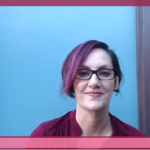There’s no definitive childhood lesson on how to handle anger. Sure, there’s parents to teach us the basics of social and emotional development, teachers who warn us not to be mean, and hot heads around us who modeled how not be be.
But when it comes to the mechanics of anger, the majority of us didn’t absorb the finer points. Worse, we grew up in families that either flew off the handle every time a dirty glass was left in the kitchen sink, or completely ignored any sign of frustration, as if the mere acknowledgment was consistent with insane asylum.
So we learned the hard way. This meant either externalizing anger in the form of projecting it toward everyone around us, or practicing internal rumination and swallowing our frustrations.
And part of the blame is how western society views anger. The bullies of the world get what they want by sheer abuse of power, while the meek and mild are rejected and dismissed. Buddhism, on the other hand, teaches that anger is an emotion of ignorance which blinds us to other people’s points of view. If, in the midst of our rage, we can instead see our detractors not as evil but as frustrated and trying to make a change, anger can actually help us cultivate empathy toward our opponents.
So what’s the middle and empowering ground for those of us raised in a less-than Zen household?
For starters, a few anger basics:
- Anger is essential.
- Anger is unavoidable.
- Anger is neither bad or good, it just is.
- Anger is not the enemy, but the behavioral manifestations can be problematic.
- Anger management is a critical skill, so get comfortable with expressing anger!
Here are a few more musings on this sadly, taboo topic:
Anger Management: Taming Your Temper (Video)
Member login
Join Team Happy
wp themes helvetica,arial,sans-serif; font-size: 14pt;"> Buy “Anger Management: Taming Your Temper”
The bottom line is anger management programs work. A recent analysis on adult anger management resources reviewed 96 various studies and found that psychological treatments are effective for treating anger in various groups (colleges and universities, hospitals, correctional facilities, etc).
In some cases, significant effects were found in as little as eight treatment sessions and the results were maintained in follow-ups of one month to a year. The strongest effects are found with multi-modality interventions (such as this one!) based on cognitive or cognitive-behavioral therapy, psychodynamic therapy and skill training. Additionally, relaxation programs, stress inoculation programs and exposure-based interventions are also helpful.
There’s an art and a science to expressing and releasing anger. If left untreated, anger issues result in maladaptive ways of coping, health problems, and the possibility of meeting the clinical criteria for anxiety and depression. The good news is help is available.
Get “Anger Management: Taming Your Temper.”
***
We all know someone with anger issues. Please pass along this resource to help a friend, coworker or family member in need. There’s too much misplaced anger in the world. Let’s put our passionate energy to good use, instead!
 Yours in expressing anger in the right way, to the right person, at the right time.
Yours in expressing anger in the right way, to the right person, at the right time.
—Linda Esposito, LCSW







